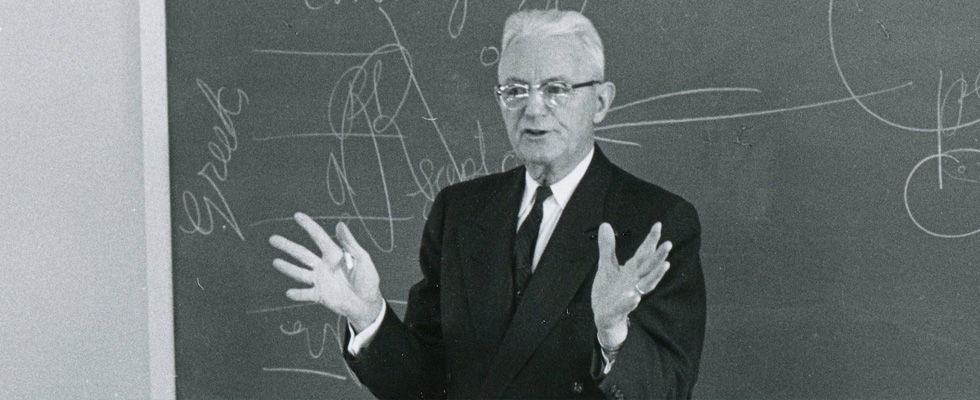Cornelius Van Til once said, “The only proof for the existence of God is that without God you could not prove anything.” This is because, without God, one cannot account for the necessary preconditions for intelligibility.
Take, for instance, the principle of uniformity. We all assume the uniformity of nature, but on what basis? Has humanity investigated every single aspect of the universe, from the smallest atomic particles to the farthest-flung galaxies? Do we have exhaustive knowledge of every particle of matter, every moment in time, every movement in space? And even if we did, there remains another pressing issue: every attempt to prove the principle of uniformity requires circular reasoning.
In order to prove uniformity, one must first presuppose both the uniformity and validity of one’s own personal experience. But, since we cannot know everything, we’re forced to presuppose uniformity, and then think and act upon that assumption.
Consequently, the principle of uniformity is not so much a scientific law as it is an act of faith and a prior commitment that undergirds scientific laws. It is a necessary precondition for intelligibility, but without God, we have no basis to believe it’s true. More than that, we have no basis to assume anything is true. There are only three options before us: (1) We know everything; (2) We do not know anything; (3) We have revelation from someone who does know everything.
Consider the following:
“If one does not make human knowledge wholly dependent upon the original self-knowledge and consequent revelation of God to man, then man will have to seek knowledge within himself as the final reference point. Then he will have to seek an exhaustive understanding of reality. He will have to hold that if he cannot attain to such an exhaustive understanding of reality he has no true knowledge of anything at all. Either man must then know everything or he knows nothing. This is the dilemma that confronts every form of non-Christian epistemology… If the God of Christianity exists, the evidence for His existence is abundant and plain so that it is both unscientific and sinful not to believe in Him.”
Cornelius Van Til, A Christian Theory of Knowledge (Nutley, NJ: Presbyterian & Reformed, 1969), 17





















